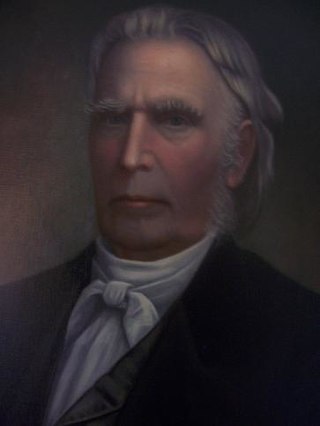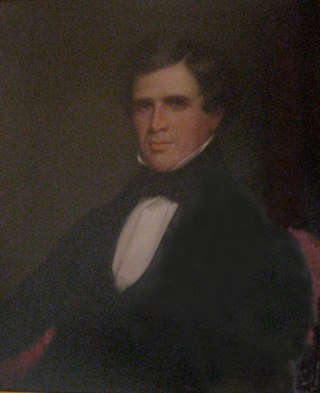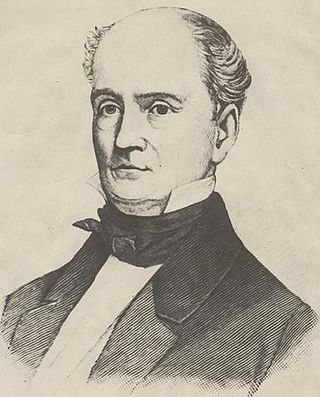
Jacob Collamer was an American politician from Vermont. He served in the U.S. House of Representatives, as Postmaster General in the cabinet of President Zachary Taylor, and as a U.S. Senator.

John Mattocks was an American Whig politician, a brigadier general in the War of 1812, U.S. Representative, and 16th governor of Vermont.

Peter Thacher Washburn was a Vermont lawyer, politician and soldier. A veteran of the American Civil War, he served as the 31st governor of Vermont as a Republican from 1869 to 1870, and was the first Vermont Governor to die in office.

Stephen Royce was an American lawyer, judge and politician. Originally a Democratic-Republican, and later a Whig Party, he became a Republican when the party was formed in the mid-1850s. Royce served as an associate justice of the Vermont Supreme Court from 1829 to 1846, chief justice from 1846 to 1852, and 23rd governor of Vermont from 1854 to 1856.
Alexander Hutchinson was a Vermont politician who served as State Auditor.

Zedekiah Silloway Stanton was an attorney and judge who served as the 44th lieutenant governor of Vermont from 1902 to 1904.

Levi Underwood was a lawyer and politician from Vermont. Originally a Democrat, Underwood's antislavery views caused him to join the new Republican Party when it was founded. Underwood was most notable for his service as the 23rd lieutenant governor of Vermont from 1860 to 1862.
Augustine Clarke was a Vermont attorney, banker and politician who was a leader of the Anti-Masonic Party and served as Vermont State Treasurer.

Asa Aikens was an attorney, politician, and judge in Vermont and New York. A veteran of the War of 1812, Aikens served as a justice of the Vermont Supreme Court from 1823 to 1824.
Asa Aldis was a Vermont attorney, politician, and judge. He served as chief justice of the Vermont Supreme Court in 1815.
Nicholas Baylies was a Vermont lawyer, politician, and judge. He served as a justice of the Vermont Supreme Court from 1831 to 1833.

Isaac Fletcher Redfield was an American lawyer, judge, and legal scholar. He was most notable for his service as an associate justice of the Vermont Supreme Court from 1836 to 1852 and chief justice from 1852 to 1859.

The Vermont Republic gubernatorial election of 1789 took place in September. Though incumbent Governor Thomas Chittenden won a plurality of the popular vote over his main competitor, Vermont Supreme Court Chief Justice Moses Robinson, the Vermont Constitution required that the legislature choose if no candidate won a majority.

Charles Linsley was a Vermont lawyer and politician. The son-in-law of Daniel Chipman, he was notable for his service as United States Attorney for the District of Vermont (1845-1849), member of the Vermont House of Representatives (1858-1859), and U.S. Collector of Customs for Vermont (1860-1861).

United States gubernatorial elections were held in 1804, in 13 states, concurrent with the House, Senate elections and presidential election.

The 1813 Vermont gubernatorial election for Governor of Vermont took place in September and October, and resulted in the election of Martin Chittenden to a one-year term.

The 1841 Vermont gubernatorial election was held on September 7, 1841.

The 1843 Vermont gubernatorial election was held on September 5, 1843.

The 1845 Vermont gubernatorial election was held on September 2, 1845.













